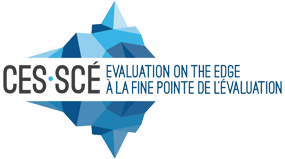Summary
A growing number of clients are asking for support in building their evaluative thinking capacity, in place of asking for an evaluation. Or, clients may begin by asking for an evaluation, but exploratory discussions reveal what they have in mind is actually evaluative thinking, unaware of the distinction. Evaluative thinking is in practice a continuum; this workshop will address:
- What is evaluative thinking?
- How can we determine whether evaluation or evaluative thinking is called for?
- What are the competencies required for evaluative thinking, and how do they differ from the competencies required for evaluation?
- How can we address specific challenges in building evaluative thinking capacity in: community organizations; government departments; cross cultural contexts; and evaluators (especially those used to focusing exclusively on conducting evaluations)?
- Evidence of how non-evaluators have used evaluative thinking to advance organizational aims will be provided.
You will learn:
- the difference between evaluation and evaluative thinking in terms of purpose, skills / competencies required;
- how to build capacity in evaluative thinking within community organizations and government departments, and in cross-cultural contexts; and
- how to apply evaluative thinking to improve organizational achievement.
Facilitators
Emma Williams, Gill Westhorp and Kim Grey: Charles Darwin University, Australia
Emma Williams is Principal Scientist in the evaluation unit of the Northern Institute at Charles Darwin University. She has assessed international development, environmental, financial, cultural and anti-violence interventions, with current projects in Australia and eastern Indonesia. Although she continues to conduct evaluations, increasingly her work in Australia and overseas involves supporting community organizations, government departments, academic researchers and even evaluators in building and using evaluative thinking capacity. She is teaching on this topic in graduate courses in 2016.
Gill Westhorp is a specialist methodologist in realist approaches. She holds a PhD in realist methodology and is co-author and core-team member for the Rameses I (international standards for realist synthesis) and Rameses II (international standards for realist evaluation) projects. With extensive experience in realist evaluation in multiple sectors (health, education, early years programs, international development, energy and climate change) from small community based evaluations to large international projects, Gill can provide insight into ‘realist evaluative thinking’.
Kim Grey is an internal evaluation manager and advisor for the Australian Government, with expertise in designing complex evaluations with realist elements involving inter-cultural evaluation of sensitive cross-government/community sector programs addressing safety and wellbeing, labour market assistance, training reform, and Indigenous Employment Policy. With graduate qualifications in research methods, Kim has knowledge and experience in theory-based evaluation, and is currently undertaking research for a Masters thesis on use of social science theory in evaluation at the University of Melbourne. Kim will provide insight into evaluative thinking in government.
Language
English
Level
Intermediate
Prerequisites
Significant experience in conducting evaluations and/or applying evaluation findings within an organization.
Schedule
Sunday, June 5 from 1:00 pm to 4:00 pm
Link to CE competencies for evaluators
- Specifies program theory
- Analyzes and interprets data
- Attends to issues of organizational and environmental change
- Monitors resources (human, financial and physical)
- Identifies and mitigates problems/issues






